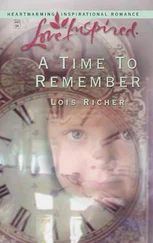Alexander Todd - A Time to Remember
Здесь есть возможность читать онлайн «Alexander Todd - A Time to Remember» весь текст электронной книги совершенно бесплатно (целиком полную версию без сокращений). В некоторых случаях можно слушать аудио, скачать через торрент в формате fb2 и присутствует краткое содержание. Город: Cambridge, Год выпуска: 1983, ISBN: 1983, Издательство: Cambridge University Press, Жанр: Химия, Биографии и Мемуары, на английском языке. Описание произведения, (предисловие) а так же отзывы посетителей доступны на портале библиотеки ЛибКат.
- Название:A Time to Remember
- Автор:
- Издательство:Cambridge University Press
- Жанр:
- Год:1983
- Город:Cambridge
- ISBN:0 521 25593 7
- Рейтинг книги:3 / 5. Голосов: 1
-
Избранное:Добавить в избранное
- Отзывы:
-
Ваша оценка:
- 60
- 1
- 2
- 3
- 4
- 5
A Time to Remember: краткое содержание, описание и аннотация
Предлагаем к чтению аннотацию, описание, краткое содержание или предисловие (зависит от того, что написал сам автор книги «A Time to Remember»). Если вы не нашли необходимую информацию о книге — напишите в комментариях, мы постараемся отыскать её.
A Time to Remember — читать онлайн бесплатно полную книгу (весь текст) целиком
Ниже представлен текст книги, разбитый по страницам. Система сохранения места последней прочитанной страницы, позволяет с удобством читать онлайн бесплатно книгу «A Time to Remember», без необходимости каждый раз заново искать на чём Вы остановились. Поставьте закладку, и сможете в любой момент перейти на страницу, на которой закончили чтение.
Интервал:
Закладка:
In February 1946, about two months after my return from Switzerland, I was off to the Continent again - this time to Germany. My old friend Bertie Blount, whose family had always been army people, was unable to resist the desire to get into uniform during the war and had a distinguished career in the army. At the end of the war he had the rank of staff colonel in the British Zone of Occupation, where he was responsible for the control of chemical and biological research. Although theoretically located elsewhere, he soon realised that Gottingen was the scientific centre of the Zone and spent most of his time working from the Aerodynamische Versuchsanstalt (whose occupying staff included a resourceful airman named Ronald Purchase). One of his great interests was to collect some of Germany's leading scientists together there, and, in due course, to re-create the old Kaiser Wilhelm Gesellschaft in a new form as the Max Planck Gesellschaft. This Gottingen group became part of the Control Commission's responsibility, and Bertie remained with it for a few years before leaving the army and returning to civilian life. One of his great interests was to see German science - which we both knew well from our student days - started up again in the devastated Germany of those days. So it was that, in February 1946, I was asked by the Foreign Office (at his instigation) to visit the British Zone of Occupation and see what might be done. At that time there was no way in which a civilian could do such a thing, so I was given a status equivalent to brigadier, dressed up in an ill-fitting army battle-dress, and put on a rather decrepit old Dakota which was ferrying supplies and occasional passengers to Buckeburg in north-west Germany. There we landed on what looked like a sea of mud, and I was met by Bertie; we drove to Gottingen where I was put up in the officers' mess. The mess was rather spartan, but reasonably comfortable, and we were well looked after. Certainly, the contrast between it and what I saw of the living conditions of the German civilians in Gottingen and in other parts of the country I visited was striking. Germany was in a shocking state; there had been appalling destruction in the cities (although not in Gottingen nor in many other small towns), food everywhere was scarce and bad, money had become more or less valueless, and daily life was conducted under a kind of barter economy in which the common currency seemed to be cigarettes.
Using Gottingen as our base, we made visits to a number of main centres of academic activity in the British Zone - Cologne, Hamburg, Kiel - and I renewed acquaintance with a goodly number of chemists, many of whom I had known before the war. These included Brockmann, Windaus, Bayer, Alder and Diels among others. The tour was not without its amusing features. I still recall the look of astonishment and disbelief on the face of Otto Diels when he discovered that the 'British general' who, he had been told, wished to interview him turned out to be me, and the not dissimilar reaction of Kikuth at the Elberfeld research laboratories of the old I.G. Farbenindustrie who, on asking me rather resignedly on my arrival in uniform what I wanted from them, was told that I really didn't want anything but a cup of tea and a chat.
Apart from a fleeting visit paid by Bertie Blount during the last days of the war, when he was attached to S.H.A.E.F. (Supreme Headquarters Allied Expeditionary Forces) and on his way eastwards to Leipzig, neither of us had had any contact with Walther Borsche since before the war. We knew that he had been dismissed from his post, but, although he was living in the country at Friedberg (Hessen) when the war ended, we had reason to believe that he and his wife were back in Frankfurt (although not in the university) by February 1946, occupying rooms in the house of a scientific friend (Dr Rajewski). Borsche fell foul of the Nazis and lost his academic position although he had no trace of Jewish blood in his ancestry; but, like his old friend Adolf Windaus, he made no attempt to conceal his hatred of everything the Nazis stood for. Bertie and I decided we would begin our scientific tour by going down to Frankfurt to see our old teacher. Frankfurt a.M. was, of course, in the American Zone, but we managed to think up some excuse for going there, obtained the necessary permits, and set off by road.
In Frankfurt we had first to present ourselves to American headquarters in the Palmengarten. My chief recollection of our call there is the remarkable behaviour of the (Puerto Rican) sentry at the main gate, who insisted on examining our papers page by page while holding them upside down.
We located the Borsche family without difficulty, and were able to visit and to spend a happy hour or two with our old professor and his wife. They were in very good shape, and seemed to be as reasonably comfortable as one could be in a German city at that time. Frankfurt was in a shocking mess. To me, particularly depressing was the destruction of the Altstadt. The cathedral was still more or less intact, but I remember standing on the steps of what had been the Romerhaus - only the facade was still standing - and looking across a wilderness of rubble towards the Main. Everything I had known so well in the old days had gone - the Roseneck, the Funf-Fingergasse - everything! One morning I thought I would like to visit the university at Bockenheim, and have a look, not only at the laboratories, but also where I had lived; I even thought I might be able to trace my old landlady in the Konigstrasse. We were lodged in a hotel in the Bahnhofsplatz about a mile or so from the university, so I thought I would walk. I certainly got a shock. On the way to the university I don't suppose I saw more than a dozen undamaged houses. In Bockenheim itself Konigstrasse, in which I had lived, had simply vanished and there was also a good deal of damage to the university buildings. Part of the chemical laboratory building where I had done my research was still standing in the Robert Mayer Strasse, and, as I could see on approaching, it was being used, since students were passing in and out. Although I didn't expect to find anyone there whom I knew, I decided to go in and have a look around. This I did, and, although my uniform attracted some attention, no-one interfered and I was able to look at my old laboratory - still just as it used to be - and wander through the building. In the course of this tour I went down to the basement, where the store which issued chemicals and equipment used to be. It was still there and still functioning as in the old days, with a queue of students filing past to purchase or borrow things. What really surprised me was that I could see that the white-coated figure behind the store counter was the same Herr Moller who had been storekeeper in my day. So I quietly joined the queue of customers, and, in due course, came up to the counter. Moller looked up, gazed at me in silence for nearly a minute, and then in his ripe Frankfurt dialect said ' Good God, who would have believed it - it's Herr Todd.' And with that he pulled down the shutter over the counter, emerged from the side-door, seized me by both hands and said ' Come in, come in - this calls for a drink!' So in I went and sat on one of the two stools in the store. Moller, meanwhile, took two beakers from a cupboard, put a generous amount of laboratory alcohol into each, diluted them with a roughly equal quantity of distilled water, handed one to me, then sat down on the other stool. We toasted one another and the old days several times in this ghastly potion, and then Moller began to chat about the laboratories and their inhabitants. 'Herr Todd', he said, 'in our days we had chemists in this place, eh? You remember them - von Braun, Borsche and the others! Ah! Things have changed! Do you know, some of the people the Nazis sent here were scientifically so small that you could hardly see them!'
Читать дальшеИнтервал:
Закладка:
Похожие книги на «A Time to Remember»
Представляем Вашему вниманию похожие книги на «A Time to Remember» списком для выбора. Мы отобрали схожую по названию и смыслу литературу в надежде предоставить читателям больше вариантов отыскать новые, интересные, ещё непрочитанные произведения.
Обсуждение, отзывы о книге «A Time to Remember» и просто собственные мнения читателей. Оставьте ваши комментарии, напишите, что Вы думаете о произведении, его смысле или главных героях. Укажите что конкретно понравилось, а что нет, и почему Вы так считаете.










